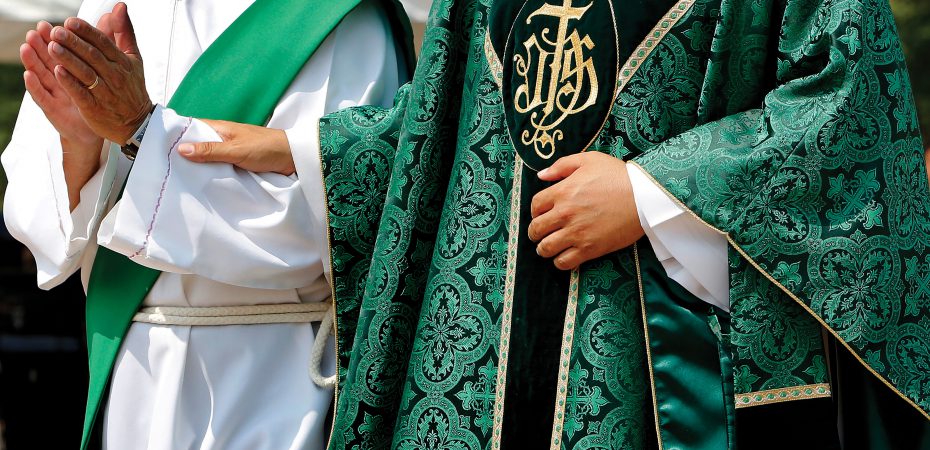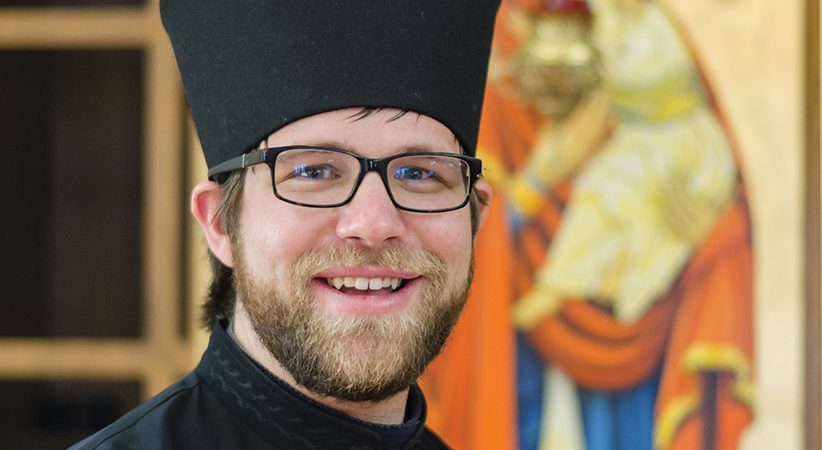Universality of the Diaconate
Priests can thrive with a firm understanding of their own diaconate
Deacon Dominic Cerrato Comments Off on Universality of the Diaconate
 I think it’s fair to say that, in the exercise of our ministry, we tend to focus most, if not all, of our attention on the laity. It’s rare that the deacon ever thinks about ministering, whether directly or indirectly, to other members of the clergy. And yet, if he’s ordained to bring Christ the Servant to the whole Church, wouldn’t that imply that his ministry has a universal character? Wouldn’t that universal character also include priests and bishops?
I think it’s fair to say that, in the exercise of our ministry, we tend to focus most, if not all, of our attention on the laity. It’s rare that the deacon ever thinks about ministering, whether directly or indirectly, to other members of the clergy. And yet, if he’s ordained to bring Christ the Servant to the whole Church, wouldn’t that imply that his ministry has a universal character? Wouldn’t that universal character also include priests and bishops?
While it’s certainly true that they, too, participate in the diaconate, it doesn’t follow that the mere participation in an order precludes ministry by members of that same order or even those at a lower level. It’s certainly not unusual for a priest to hear the confession of a bishop, anoint him when he’s sick or even offer Mass when he’s in choir. Isn’t it reasonable to conclude that a deacon, exercising ministry within the scope of his vocation, minister to other members of the clergy, even those of higher rank?
An example of this universality took place a couple of months ago where four of my brother deacons and I submitted a scholarly paper to Seminary Journal, published in its Spring 2019 issue, on the role of the diaconate in priestly formation. It considered how transitional deacons receive almost no formation in the diaconate before their ordination. We wrote: “If not more fully and intentionally explored in a theological and pastoral way during seminary formation, the diaconate within priestly formation risks being diminished by the man himself. Future priests, then, will be bereft of a diaconal imagination even as it cohabits priesthood in an ontological way. As seminary formation and curriculum stand today, seminarians rarely encounter a robust theology of this grade of holy orders in their formation. Seminarians and formators are eager to ‘get to priesthood’ in their classes and meditations.”
The paper argues that the sacramental and ministerial identity of the diaconate must be engaged by seminarians as an essential part of their priestly formation. This is because the diaconate offers the priesthood foundational ways of enriching its ministry with a quality of self-giving service. Imbued with this, the priest more effectively can exercise his priesthood in Christ who “came not to be served, but to serve (diakonos) and give his life in ransom (sacerdos) for the many” (Mk 10:45). Beyond this, a strong sense of the diaconate in the priesthood can mitigate, if not eliminate, clericalism.
It’s difficult to say what influence, if any, the paper will have on seminary formation, but it does identify a profound lacking. To require the reception of a sacrament and not substantially prepare candidates is unthinkable, and yet, with regard to the transitional diaconate, this is the norm and not the exception. If, because of this lack of preparation, a priest is not consciously aware of his own diaconate, how can he be consciously aware of the diaconate within the broader mission of the Church? How can he fully appreciate the deacons assigned to him? More to the point, what would the Church look like if seminary formation intentionally and thoroughly integrated the diaconate?
Another way to extend the universality of diaconal ministry is happening on the local level here in the Diocese of Joliet, Illinois. This past spring I was asked to give an intensive workshop to the recently ordained transitional deacons on the identity and mission of the diaconate. After the workshop, they were to be paired with exemplary permanent deacons to shadow them in their ministry throughout the summer. The transitional deacons will return every couple of weeks to discuss how their experience of the diaconate can enrich their ministry as priests. In future, we will run this program prior to their ordination to the diaconate. This approach is revolutionary, and much thanks is owed to a vocation director with the vision and insight to implement it.
DEACON DOMINIC CERRATO, Ph.D., is editor of Deacon Digest and the director of diaconal formation for the Diocese of Joliet, Illinois. He is founder of Diaconal Ministries, where he gives national presentations and retreats to deacons and diaconal candidates.



